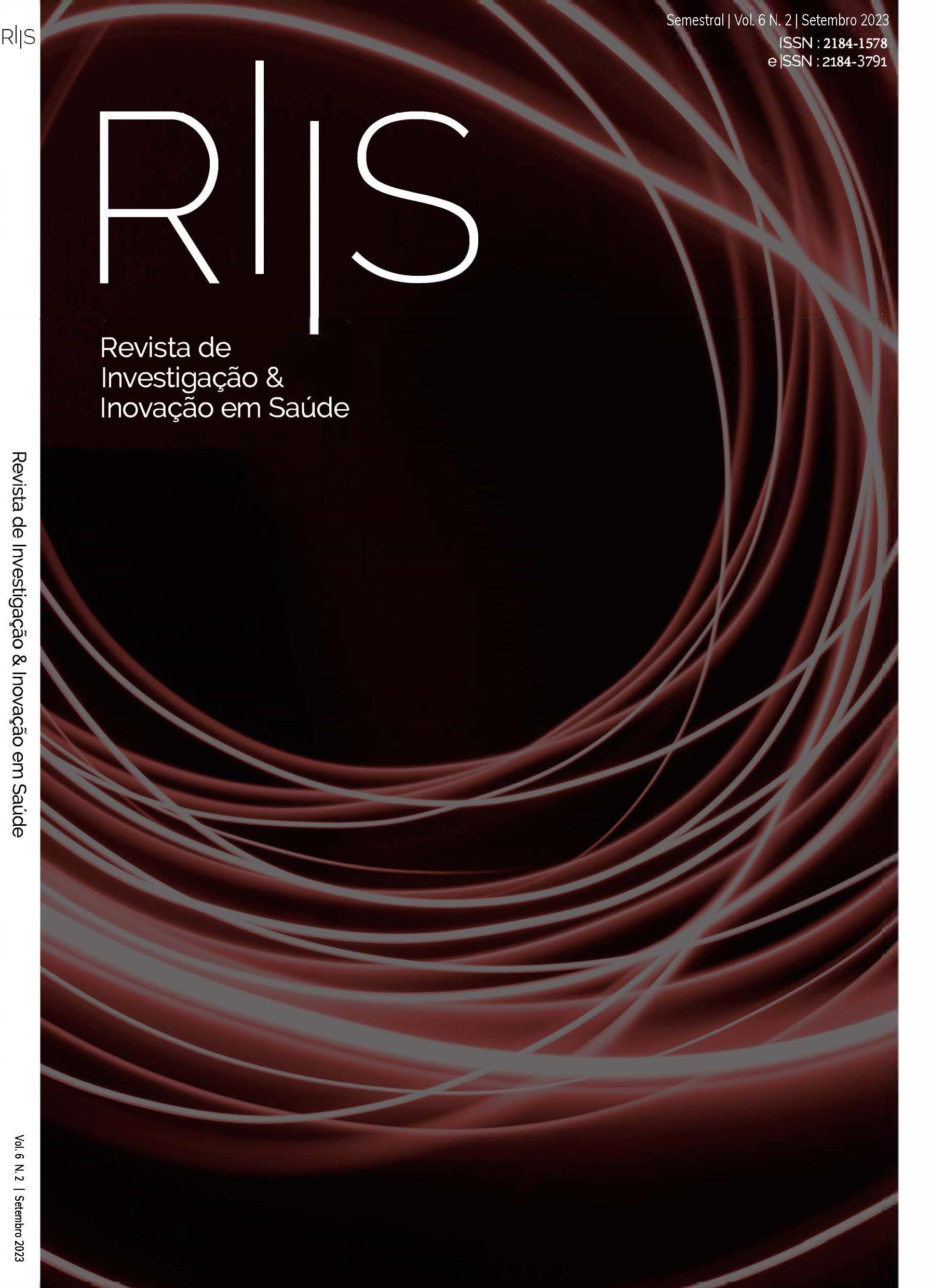Family experiencing fear of death in a pediatric intensive care unit: phenomenological study
DOI:
https://doi.org/10.37914/riis.v7i3.326Keywords:
intensive care units; death; family; childAbstract
Background: the pediatric intensive care unit is a stressful environment, where the family experiences an unexpected situation, surrounded by anguish, fear of the unknown and the risk of the child's death. Objective: to understand the families' experiences during the child's hospitalization in the pediatric intensive care unit. Methodology: qualitative research with a phenomenological approach, carried out in a teaching hospital. Participants were 13 family members of children who were hospitalized in the pediatric intensive care unit. Data collected through a phenomenological semi-structured interview and interpreted using hermeneutics. Results: the family experiences the fear of the unknown in the face of the existential vulnerability of being a child during hospitalization, the fear intensifies when the child is hospitalized for the second time. This impact adds to a variety of negative feelings; in coping, the family uses different coping mechanisms such as strengthening the support network, positive thinking, faith, strength and hope. Conclusion: to face the situation of illness, receiving the prognosis and risk of death of the child, the family suffers a strong impact, the fear of losing the child is evident as the greatest of them, being essential to adapt to the situation and use a coping mechanism.
References
Anjos, C., Santo, F. H. do E., Silva, L. F., Sousa, A. D. R. S., & Góes, F. G. B. (2019). A permanência da família no centro de terapia intensiva pediátrica oncológica: percepção da enfermagem. Rev. Enferm. Atual In Derme, 87(25), e-1180. https://doi.org/10.5935/14152762.20190028
Bazzan, J. S., Milbrath, V. M., Gabatz, R. I. B., Soares, M. C., Schwartz, E., & Soares, D. C. (2019). Support systems in the pediatric intensive therapy unit: family perspective. Rev. Bras. Enferm., 72(3), 243-250. https://doi.org/10.1590/0034-7167-2018-0588
Busa, A., Silva, G. B., & Rocha, F. P. (2019). O luto do jovem adulto decorrente da morte dos pais pelo câncer. Psicol. cienc. prof. [online], 39, e183780. https://doi.org/10.1590/1982-3703003183780
Dourado, C. A. do N., Almeida, A. P., Silva, R. A. N., Silva, R. M. O., Rangel, M. de F. A., Silva, M. G., Abreu, V. P. L., da Mota, R. S., Vieira, M. A., Lima, T. O. S., & Abrao, R. K. (2022). A criança no ambiente hospitalar e o processo de humanização. Concilium, 22(4), 359–377. https://doi.org/10.53660/CLM-381-376
Freitag, V. L., Milbrath, V. M., Federizzi, D. S., Dalmolin, I. S. & Tisott, Z. L. (2020). A willing existence: the care of the mother to the child/adolescent with cerebral palsy. Bioscience Journal, 36(1), 287-294. https://doi.org/10.14393/BJ-v36n1a2020-41883
Florêncio, A., & Cerqueira, M. (2021). A família da criança com doença crónica no domicílio: emoções no cuidar. Revista de Investigação & Inovação em Saúde, 4(2), 73-87. https://doi.org/10.37914/riis.v4i2.109
Oliveira, M. G. de, Specht, A. L., Gabatz, R. I. B., Hense, T. D., Bório, T. da C., & Milbrath, V. M. (2023). Acolhimento e rede de apoio do cuidador familiar da criança e/ou do adolescente no serviço de saúde mental. Revista Brasileira De Pesquisa Em Saúde Brazilian Journal of Health Research, 25(2), 106–116. https://doi.org/10.47456/rbps.v25i2.28140
Heidegger M. (2015). Ser e tempo. 10ª edição. Vozes.
Leal, W. O., & Franco, P. A. F. (2024). Cuidados de enfermagem centrados na família na unidade de terapia intensiva neonatal. Revista foco, 17(4), e4886. https://doi.org/10.54751/revistafoco.v17n4-140
Lima, L. G., & Smeha, L. M. (2019). A experiência da maternidade diante da internação do bebê em UTI: uma montanha russa de sentimentos. Psicologia em Estudo, 24, e38179. https://doi.org/10.4025/psicolestud.v24i0.38179
López, S.M. (2014). La entrevista fenomenológica: una propuesta para la investigación en psicología y psicoterapia. Revista da Abordagem Gestáltica: Phenomenological Studies, XX(1), 71-76. https://www.redalyc.org/articulo.oa?id=357733920009
Neis, M., Issi, H. B., Motta, M. da G. C. da, Rocha, C. M. F., & Carvalho, P. R. A. (2022). The experience of families in face of the finiteness of their children in the process of adopting palliative care. Revista Gaúcha de Enfermagem, 43, e20220174. https://doi.org/10.1590/1983-1447.2022.20220174.en
Paiva, C. B. N., & Barros, S. M. M. de. (2023). Representações sociais da humanização em pediatria hospitalar entre profissionais de saúde. Psicologia Em Estudo, 28, e54532. https://doi.org/10.4025/psicolestud.v28i0.54532
Ricouer, P. (1978). O conflito das interpretações: ensaios de hermenêutica. Imago.
Santos, C. T. A., Miranda, S. S., Freitas, K. O., & Vasconcelos, E. L. (2020). Percepções de acadêmicos de enfermagem sobre o processo morte e morrer: implicações na formação profissional. Enferm. Foco, 11(3), 48-53. https://doi.org/10.21675/2357-707X.2020.v11.n3.3243
Schneider, A. S., Ludwig, M. C. F., Neis, M., Ferreira, A. M., & Issi, H. B. (2020). Perceptions and experiences of the nursing team before the pediatric patient in palliative care. Cien Cuid Saude, 19, e41789. https://doi.org/10.4025/ciencuidsaude.v19i0.41789
Tsutumi, W. M., Araujo, J. P., Gallo, A. M., Pöttker, L. M. V., Desconsi, D., & Roecker, S. (2023). Cuidado de enfermagem à criança com foco no cuidado centrado na família. Revista Eletrônica Acervo Saúde, 23(1), e11773. https://doi.org/10.25248/reas.e11773.2023
Tong, A., Sainsbury, P., & Craig, J. (2015). Consolidated criteria for reporting qualitative research (COREQ): a 32-item checklist for interviews and focus groups. International Journal for Quality in Health Care, 19(6), 349-357. https://doi.org/10.1093/intqhc/mzm042
Vasconcelos, L. S., Camponogara, S., Neves, E. T., Bonfada, M. S., Dias, G. L., & Bin, A. (2020). Estratégias defensivas utilizadas pela enfermagem frente à morte em terapia intensiva pediátrica. Enferm. Foco, 11(2), 57-63. https://doi.org/10.21675/2357-07X.2020.v11.n2.2548
Downloads
Published
How to Cite
Issue
Section
License
Copyright (c) 2024 jessica stragliotto bazzan, Viviane Marten Milbrath, Ruth Irmgard Bärtschi Gabatz, Josiele de Lima Neves, Tuize Damé Hense, Vera Lucia Freitag

This work is licensed under a Creative Commons Attribution 4.0 International License.















